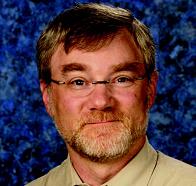Alumni
Working and Giving with Heart
 Howard Simon, attorney and corporate executive, has managed to blend two seemingly disparate career tracks into one path, taking the seeds of ethics, compassion, and collaboration he picked up at the Graduate Theological Union and planting them in California’s biotechnology industry.
Howard Simon, attorney and corporate executive, has managed to blend two seemingly disparate career tracks into one path, taking the seeds of ethics, compassion, and collaboration he picked up at the Graduate Theological Union and planting them in California’s biotechnology industry.
In 1985, Simon simultaneously earned an M.A. in Jewish Studies at the GTU and a law degree at UC Berkeley’s Boalt Hall. He was interested in ethics and how religious codes of moral conduct become legal mandates.
“I looked at seminary as an antidote to law school,” he says, “where legal reasoning was considered a higher order of thought. At the GTU, I realized legal reasoning wasn’t a higher order, but just another set of intellectual tools. The tools one gets at the GTU are not only worthwhile, but important for structuring one’s world and consciousness.”
Simon discovered the worth of his GTU education when he started his first job at a prestigious Chicago law firm.
“That first day,” he says, “I found myself working on litigation to help battered women get restraining orders and at the same time defending a company so they might walk away from some of the consequences of a toxic chemical spill.”
“My GTU experience made me a more effective listener, a better negotiator, and a useful mediator of disputes.”
His conscience in turmoil, Simon told his new boss he couldn’t “put his values on a shelf.” His boss offered a deal: He wouldn’t ask Simon to violate legal ethics, and if he worked six months on the toxic spill case and still felt the same, he would be reassigned. Simon accepted and left the case after six months.
“Had I solely gone to law school,” says Simon, “I wouldn’t have brought that sensibility to my profession or earned the respect of my boss, a highly esteemed litigator.”
At the GTU Simon also learned about mediating the deeply held beliefs of others. He recalls studying Hebrew and New Testament texts in a room full of Jews, Jesuits, and Evangelicals — some who accepted a literal interpretation, others an historical one.
“The matrix of these beliefs formed an extraordinarily complex web, says Simon. “Absorbing the welter of traditions and beliefs in that room and trying to learn from each person what informed his or her response was a great experience. That classroom reflects our world, where peace and prosperity depend on understanding and working with, not against, the often unspoken beliefs of other people. My GTU experience made me a more effective listener, a better negotiator, and a useful mediator of disputes.”
Simon’s GTU experience also spurred his more than 20-year commitment to corporate social responsibility. Wherever he has worked, Simon has started corporate philanthropy programs. At Maxygen, a biotechnology company based in Redwood City, California, he organized a team of employee volunteers to plant shade trees in poor neighborhoods and tutor kids at a middle school the company “adopted,” bringing in top scientists to help students understand the basics of biology. And he initiated a program that allowed employees to take four paid days a year to work for a community organization.
At InterMune, a biotechnology company where Simon now serves as senior vice president of Human Resources and Corporate Services, he has led participation in Bike for Breath, a fundraising bicycle ride that involves about half of InterMune’s 150 employees.
“We ask our key partners, such as law firms and suppliers, to join in the effort,” says Simon, who also shares his knowledge of corporate giving at presentations he gives to Silicon Valley business leaders. In this way he says he can help corporate philanthropy cast a wider net, or scatter the seeds he took from the GTU further afield.
